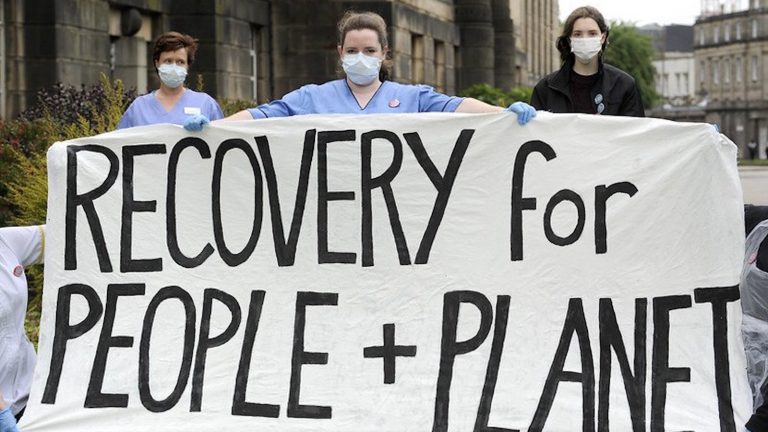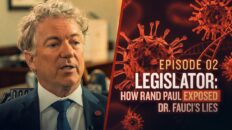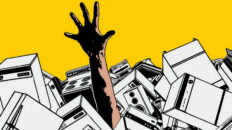You’ve likely read headlines that celebrate either an impending economic recovery or one that is currently underway, but do those sensationalized headlines accurately portray the whole picture? If politicians are claiming to have brought about this recovery, you know something is off. Is it reasonable to applaud the arsonist who helped extinguish his own fire? Setting aside for the moment how a recovery would be completely unnecessary if an alleged free people were allowed to adjust, on their own terms, to the threat of a so-called novel virus, an examination of the recovery leads one to ponder the unsettling answers to the following question.
How has the government impacted the recovery?
First, I’ll address the absurdity of politicians’ claims. Their “craft” demands that they take credit for the good times (with which they had nothing to do) while simultaneously pretending to have nothing to do with the bad times (that they created). It’s a constant charade—one that wouldn’t be nearly as exhausting to behold if the audience viewed the performers as a bit more “easy on the eyes.” As a friend of mine tells me, the District of Columbia is for D- and C-list actors—Hollywood for the ugly. Joking aside, why is it ridiculous for politicians to claim that they created jobs? Because no matter how smart, suave, or shrewd the sycophant, they simply don’t have the tools to create anything but misery; they can only redistribute. If a politician claims that he’ll create jobs in, say, the steel industry, by definition, at least an equivalent number of jobs will be destroyed elsewhere. In Bureaucracy, Ludwig von Mises detailed how governments are incapable of replicating the successful businesses’ vital habit:
If a quotation from 1944 is somehow beyond the pale, John Tamny recently explained how the productive “adjust production”: wealth never sits idle; what’s not spent is always and everywhere shifted. Elaborating on Mises and Tamny, economic calculation is devoid of coercion, but for government, coercion is the only tool at its disposal.
Just as your tax returns are the return of your own money (or someone else’s), “stimulus” payments are borrowed from future generations; unnatural laws produce resentment, not wealth. There exists no pot of gold from which politicians benevolently disperse to the masses; everything the government has was taken. If I were to mug you and then donate the contents of your wallet, is it reasonable to deem me a philanthropist? Similarly, it is the government that created the need for a recovery, and their offer that we cannot refuse is akin to hailing us a cab after they mugged us: “In exchange for your job that we destroyed, we’d like to pay for your ride home—the place from which you’re forbidden to leave.” Now that more and more governors are allowing their subjects to leave their homes, as evidenced by the (weak) gains in private employment, anyone can see why the recovery has been, at best, slow to materialize. Since March 2020, federal politicians have pulled no punches to paper over the disastrous decrees that state politicians dictated, but in their attempts to help, they’ve only hampered the recovery. Politics attempts to make palatable ignoring “the natural law of parsimony (the most gain for the least effort)” as proudly as pursuing predation. As Jeff Deist has said, “Politics is poison.” Politicians and bureaucrats cannot create anything of value; they can only “adjust,” “shift,” and transfer wealth so as to render the gross domestic product unscathed. If the federal government spends the money it stole in proportion to the constrained consumption and investment nationwide, GDP will remain static, and politicians will casually whitewash the most destructive policies implemented since pre-Civil War slavery.
This is why it’s beneficial to analyze the recovery on a state-by-state basis, but before reviewing what Washington’s state economists have to say, Llewellyn Rockwell explains Friedrich Hayek’s take on moral courage:
According to Hayek, then, the state “economists” lack courage because they dare not stray from the popular path: “Due to the COVID-19 outbreak there was a significant decrease in jobs…” No, the “significant decrease in jobs” is due to the nominal head of the bureaucracy and his bootlicking bureaucrats.
From March 2020 through March 2021, of the non-farm industries that lost jobs, leisure and hospitality was the hardest hit, accounting for 41% of those lost jobs. This is surprising, considering that leisure and hospitality cracked COVID’s code; it was among the first to be shut down, but once allowed to reopen, restaurants soon learned that customers are immune from infection, so long as they remain seated at their table. Imagine the number of lives that could’ve been saved if, in lieu of “stimulus” checks, each American received a chair, each family, a table. Seriously now, and curiously, the government “industry” was the second-hardest hit, shedding approximately one-quarter of lost jobs and implying an understanding among top bureaucrats that parasites cannot survive without a healthy host. More surprising is that of the 13 industries surveyed, four gained jobs. It remains a mystery why education and health services is a singular industry, but in a year in which schools were largely shut down, why would education gain jobs? During a time in which the state was allegedly ravaged by such a devastating disease, why would gains in health services equate to less than half of the “information” industry’s gains and less than one-third of the gains in retail? Most people believe what they want to believe, but is their willful ignorance too dense to ignore the following? Most who died from or with COVID-19 had already eclipsed the average life expectancy.
We’re being lied to—manipulated—on an hourly, if not constant basis. Billions were barbarically restrained and robbed, and now that they’ve been instructed to pursue a bridled happiness, they rejoice over a “recovery”—Stockholm Syndrome of pandemic proportions. I’m not asking that you hate the State, though I can’t comprehend how you couldn’t; I’m asking that you consider recognizing the State for what it is—a violent parasite. Frank Chodorov explains:
This article originally appeared on Uncle Nap.














Add comment